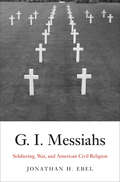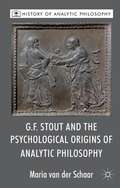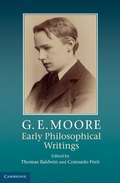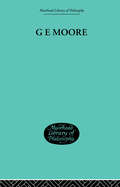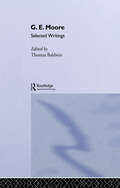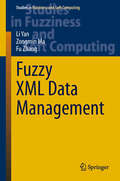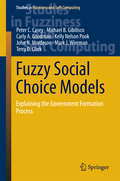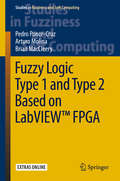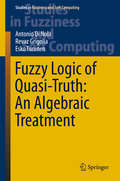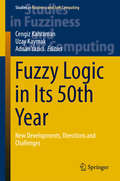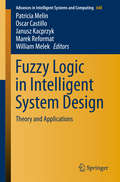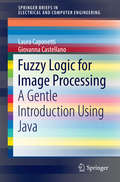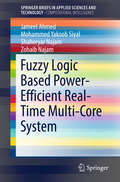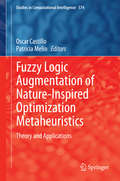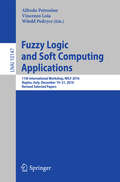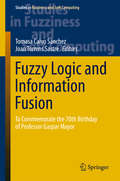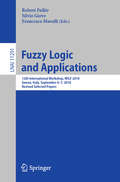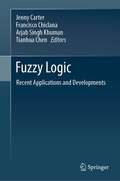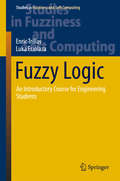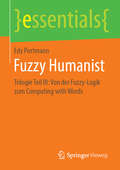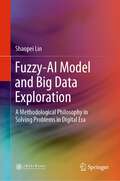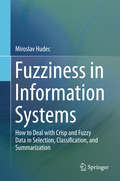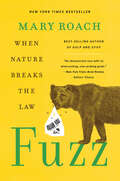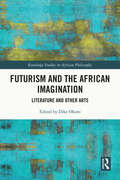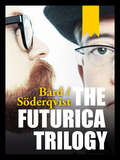- Table View
- List View
G.I. Messiahs
by Jonathan H. EbelJonathan Ebel has long been interested in how religion helps individuals and communities render meaningful the traumatic experiences of violence and war. In this new work, he examines cases from the Great War to the present day and argues that our notions of what it means to be an American soldier are not just strongly religious, but strongly Christian. Drawing on a vast array of sources, he further reveals the effects of soldier veneration on the men and women so often cast as heroes. Imagined as the embodiments of American ideals, described as redeemers of the nation, adored as the ones willing to suffer and die that we, the nation, may live-soldiers have often lived in subtle but significant tension with civil religious expectations of them. With chapters on prominent soldiers past and present, Ebel recovers and re-narrates the stories of the common American men and women that live and die at both the center and edges of public consciousness. "
G.F. Stout and the Psychological Origins of Analytic Philosophy
by Maria van der SchaarAn investigatation of the influence of psychology and early phenomenology on the origins of analytic philosophy. This book is also of value for those interested in judgement, proposition, psychologism, logical realism, the problem of error, Gestalt theories, and tropes.
G. E. Moore: Early Philosophical Writings
by Thomas Baldwin Consuelo PretiG. E. Moore's fame as a philosopher rests on his ethics of love and beauty, which inspired Bloomsbury, and on his 'common sense' certainties which challenge abstract philosophical theory. Behind this lies his critical engagement with Kant's idealist philosophy, which is published here for the first time. These early writings, Moore's fellowship dissertations of 1897 and 1898, show how he initiated his influential break with idealism. In 1897 his main target was Kant's ethics, but by 1898 it was the whole Kantian project of transcendental philosophy that he rejected, and the theory which he developed to replace it gave rise to the new project of philosophy as logical analysis. This edition includes comments by Moore's examiners Henry Sidgwick, Edward Caird and Bernard Bosanquet, and in a substantial introduction the editors explore the crucial importance of the dissertations to the history of twentieth-century philosophical thought.
G E Moore: Essays in Retrospect
by Morris LazerowitzThis is Volume III of twenty-two volumes on 20th Century Philosophy. Originally published in 1970, this is a collection of essays of George Edward Moore (1873-1958) who was one of the most influential philosophers of the twentieth century, and the outcome of the changes he introduced into our ways of thinking in philosophy cannot yet be foreseen.
G.E. Moore: Selected Writings (International Library of Philosophy)
by G. E. Moore Thomas BaldwinG.E. Moore, more than either Bertrand Russell or Ludwig Wittgenstein, was chiefly responsible for the rise of the analytic method in twentieth-century philosophy. This selection of his writings shows Moore at his very best.The classic essays are crucial to major philosophical debates that still resonate today. Amongst those included are:* A Defense of Common Sense* Certainty* Sense-Data* External and Internal Relations* Hume's Theory Explained* Is Existence a Predicate?* Proof of an External WorldIn addition, this collection also contains the key early papers in which Moore signals his break with idealism, and three important previously unpublished papers from his later work which illustrate his relationship with Wittgenstein.
Fuzzy XML Data Management
by Li Yan Zongmin Ma Fu ZhangThis book presents an exhaustive and timely review of key research work on fuzzy XML data management, and provides readers with a comprehensive resource on the state-of-the art tools and theories in this fast growing area. Topics covered in the book include: representation of fuzzy XML, query of fuzzy XML, fuzzy database models, extraction of fuzzy XML from fuzzy database models, reengineering of fuzzy XML into fuzzy database models, and reasoning of fuzzy XML. The book is intended as a reference guide for researchers, practitioners and graduate students working and/or studying in the field of Web Intelligence, as well as for data and knowledge engineering professionals seeking new approaches to replace traditional methods, which may be unnecessarily complex or even unproductive.
Fuzzy Social Choice Models
by Peter C. Casey Michael B. Gibilisco Carly A. Goodman Kelly Nelson Pook John N. Mordeson Mark J. Wierman Terry D. ClarkThis book explores the extent to which fuzzy set logic can overcome some of the shortcomings of public choice theory, particularly its inability to provide adequate predictive power in empirical studies. Especially in the case of social preferences, public choice theory has failed to produce the set of alternatives from which collective choices are made. The book presents empirical findings achieved by the authors in their efforts to predict the outcome of government formation processes in European parliamentary and semi-presidential systems Using data from the Comparative Manifesto Project (CMP), the authors propose a new approach that reinterprets error in the coding of CMP data as ambiguity in the actual political positions of parties on the policy dimensions being coded. The range of this error establishes parties' fuzzy preferences. The set of possible outcomes in the process of government formation is then calculated on the basis of both the fuzzy Pareto set and the fuzzy maximal set, and the predictions are compared with those made by two conventional approaches as well as with the government that was actually formed. The comparison shows that, in most cases, the fuzzy approaches outperform their conventional counterparts.
Fuzzy Logic Type 1 and Type 2 Based on LabVIEWTM FPGA
by Brian Maccleery Arturo Molina Pedro Ponce-CruzThis book is a comprehensive introduction to LabVIEW FPGA(tm), a package allowing the programming of intelligent digital controllers in field programmable gate arrays (FPGAs) using graphical code. It shows how both potential difficulties with understanding and programming in VHDL and the consequent difficulty and slowness of implementation can be sidestepped. The text includes a clear theoretical explanation of fuzzy logic (type 1 and type 2) with case studies that implement the theory and systematically demonstrate the implementation process. It goes on to describe basic and advanced levels of programming LabVIEW FPGA and show how implementation of fuzzy-logic control in FPGAs improves system responses. A complete toolkit for implementing fuzzy controllers in LabVIEW FPGA has been developed with the book so that readers can generate new fuzzy controllers and deploy them immediately. Problems and their solutions allow readers to practice the techniques and to absorb the theoretical ideas as they arise. Fuzzy Logic Type 1 and Type 2 Based on LabVIEW FPGA(tm), helps students studying embedded control systems to design and program those controllers more efficiently and to understand the benefits of using fuzzy logic in doing so. Researchers working with FPGAs find the text useful as an introduction to LabVIEW and as a tool helping them design embedded systems.
Fuzzy Logic of Quasi-Truth: An Algebraic Treatment
by Antonio Di Nola Revaz Grigolia Esko TurunenThis book presents the first algebraic treatment of quasi-truth fuzzylogic and covers the algebraic foundations of many-valued logic. Itoffers a comprehensive account of basic techniques and reports on importantresults showing the pivotal role played by perfect many-valued algebras(MV-algebras). It is well known that the first-order predicate Łukasiewiczlogic is not complete with respect to the canonical set of truth values. However, it is complete with respect to alllinearly ordered MV -algebras. As there are no simple linearly orderedMV-algebras in this case, infinitesimal elements of an MV-algebra are allowedto be truth values. The book presents perfect algebras as an interestingsubclass of local MV-algebras and provides readers with the necessary knowledgeand tools for formalizing the fuzzy concept of quasi true and quasi false. Allbasic concepts are introduced in detail to promote a better understanding ofthe more complex ones. It is an advanced and inspiring reference-guide forgraduate students and researchers in the field of non-classical many-valuedlogics.
Fuzzy Logic in Its 50th Year
by Cengiz Kahraman Uzay Kaymak Adnan YaziciThis book offers a multifacetedperspective on fuzzy set theory, discussing its developments over the last 50years. It reports on all types of fuzzy sets, from ordinary to hesitant fuzzysets, with each one explained by its own developers, authoritative scientistswell known for their previous works. Highlighting recent theorems and proofs,the book also explores how fuzzy set theory has come to be extensively used inalmost all branches of science, including the health sciences, decisionscience, earth science and the social sciences alike. It presents a wealth ofreal-world sample applications, from routing problem to robotics, and fromagriculture to engineering. By offering a comprehensive, timely and detailedportrait of the field, the book represents an excellent reference guide forresearchers, lecturers and postgraduate students pursuing research on new fuzzyset extensions.
Fuzzy Logic in Intelligent System Design
by Oscar Castillo Patricia Melin Janusz Kacprzyk Marek Reformat William MelekThis book describes recent advances in the use of fuzzy logic for the design of hybrid intelligent systems based on nature-inspired optimization and their applications in areas such as intelligent control and robotics, pattern recognition, medical diagnosis, time series prediction and optimization of complex problems. Based on papers presented at the North American Fuzzy Information Processing Society Annual Conference (NAFIPS 2017), held in Cancun, Mexico from 16 to 18 October 2017, the book is divided into nine main parts, the first of which first addresses theoretical aspects, and proposes new concepts and algorithms based on type-1 fuzzy systems. The second part consists of papers on new concepts and algorithms for type-2 fuzzy systems, and on applications of type-2 fuzzy systems in diverse areas, such as time series prediction and pattern recognition. In turn, the third part contains papers that present enhancements to meta-heuristics based on fuzzy logic techniques describing new nature-inspired optimization algorithms that use fuzzy dynamic adaptation of parameters. The fourth part presents emergent intelligent models, which range from quantum algorithms to cellular automata. The fifth part explores applications of fuzzy logic in diverse areas of medicine, such as the diagnosis of hypertension and heart diseases. The sixth part describes new computational intelligence algorithms and their applications in different areas of intelligent control, while the seventh examines the use of fuzzy logic in different mathematic models. The eight part deals with a diverse range of applications of fuzzy logic, ranging from environmental to autonomous navigation, while the ninth covers theoretical concepts of fuzzy models
Fuzzy Logic for Image Processing
by Laura Caponetti Giovanna CastellanoThis book provides an introduction to fuzzy logic approaches useful in image processing. The authors start by introducing image processing tasks of low and medium level such as thresholding, enhancement, edge detection, morphological filters, and segmentation and shows how fuzzy logic approaches apply. The book is divided into two parts. The first includes vagueness and ambiguity in digital images, fuzzy image processing, fuzzy rule based systems, and fuzzy clustering. The second part includes applications to image processing, image thresholding, color contrast enhancement, edge detection, morphological analysis, and image segmentation. Throughout, they describe image processing algorithms based on fuzzy logic under methodological aspects in addition to applicative aspects. Implementations in java are provided for the various applications.
Fuzzy Logic Based Power-Efficient Real-Time Multi-Core System
by Jameel Ahmed Mohammed Yakoob Siyal Shaheryar Najam Zohaib NajamThis book focuses on identifying the performance challenges involved in computer architectures, optimal configuration settings and analysing their impact on the performance of multi-core architectures. Proposing a power and throughput-aware fuzzy-logic-based reconfiguration for Multi-Processor Systems on Chip (MPSoCs) in both simulation and real-time environments, it is divided into two major parts. The first part deals with the simulation-based power and throughput-aware fuzzy logic reconfiguration for multi-core architectures, presenting the results of a detailed analysis on the factors impacting the power consumption and performance of MPSoCs. In turn, the second part highlights the real-time implementation of fuzzy-logic-based power-efficient reconfigurable multi-core architectures for Intel and Leone3 processors.
Fuzzy Logic Augmentation of Nature-Inspired Optimization Metaheuristics
by Oscar Castillo Patricia MelinThis book describes recent advances on fuzzy logic augmentation of nature-inspired optimization metaheuristics and their application in areas such as intelligent control and robotics, pattern recognition, time series prediction and optimization of complex problems. The book is organized in two main parts, which contain a group of papers around a similar subject. The first part consists of papers with the main theme of theoretical aspects of fuzzy logic augmentation of nature-inspired optimization metaheuristics, which basically consists of papers that propose new optimization algorithms enhanced using fuzzy systems. The second part contains papers with the main theme of application of optimization algorithms, which are basically papers using nature-inspired techniques to achieve optimization of complex optimization problems in diverse areas of application.
Fuzzy Logic and Soft Computing Applications
by Alfredo Petrosino Vincenzo Loia Witold PedryczThis book comprises a selection of papers from the IFSA 2007 World Congress on theoretical advances and applications of fuzzy logic and soft computing. These papers were selected from over 400 submissions and constitute an important contribution to the theory and applications of fuzzy logic and soft computing methodologies. Soft Computing consists of several computing paradigms, including fuzzy logic, neural networks, genetic algorithms, and other techniques, which can be used to produce powerful intelligent systems for solving real-world problems. Applications range from pattern recognition to intelligent control and sow the advantages of using soft computing theory and methods. The papers of IFSA 2007 also make a contribution to this goal.
Fuzzy Logic and Information Fusion
by Tomasa Calvo Sánchez Joan Torrens SastreThis book offers a timely report on keytheories and applications of soft-computing. Written in honour of ProfessorGaspar Mayor on his 70th birthday, it primarily focuses on areas related to hisresearch, including fuzzy binary operators, aggregation functions,multi-distances, and fuzzy consensus/decision models. It also discusses anumber of interesting applications such as the implementation of fuzzymathematical morphology based on Mayor-Torrens t-norms. Importantly, thedifferent chapters, authored by leading experts, present novel results andoffer new perspectives on different aspects of Mayor's research. The book alsoincludes an overview of evolutionary fuzzy systems, a topic that is not one of Mayor's main areas of interest, and a final chapterwritten by the Spanish pioneer in fuzzylogic, Professor E. Trillas. Computer and decision scientists, knowledgeengineers and mathematicians alike will find here an authoritative overview ofkey soft-computing concepts and techniques.
Fuzzy Logic and Applications: 12th International Workshop, Wilf 2018, Genoa, Italy, September 6-7, 2018, Revised Selected Papers (Lecture Notes in Computer Science #11291)
by Robert Fullér Silvio Giove Francesco MasulliThis book constitutes the post-conference proceedings of the 12th International Workshop on Fuzzy Logic and Applications, WILF 2018, held in Genoa, Italy, in September 2018. <P><P> The 17 revised full papers and 9 short papers were carefully reviewed and selected from 26 submissions. The papers are organized in topical sections on fuzzy logic theory, recent applications of fuzzy logic, and fuzzy decision making. Also included are papers from the round table "Zadeh and the future of logic" and a tutorial.
Fuzzy Logic: Recent Applications and Developments
by Jenny Carter Francisco Chiclana Arjab Singh Khuman Tianhua ChenSince its inception, fuzzy logic has attracted an incredible amount of interest, and this interest continues to grow at an exponential rate. As such, scientists, researchers, educators and practitioners of fuzzy logic continue to expand on the applicability of what and how fuzzy can be utilised in the real-world. In this book, the authors present key application areas where fuzzy has had significant success. The chapters cover a plethora of application domains, proving credence to the versatility and robustness of a fuzzy approach. A better understanding of fuzzy will ultimately allow for a better appreciation of fuzzy. This book provides the reader with a varied range of examples to illustrate what fuzzy logic can be capable of and how it can be applied. The text will be ideal for individuals new to the notion of fuzzy, as well as for early career academics who wish to further expand on their knowledge of fuzzy applications. The book is also suitable as a supporting text for advanced undergraduate and graduate-level modules on fuzzy logic, soft computing, and applications of AI.
Fuzzy Logic
by Enric Trillas Luka EciolazaThis book introduces readers to fundamental concepts in fuzzy logic. It describes the necessary theoretical background and a number of basic mathematical models. Moreover, it makes them familiar with fuzzy control, an important topic in the engineering field. The book offers an unconventional introductory textbook on fuzzy logic, presenting theory together with examples and not always following the typical mathematical style of theorem-corollaries. Primarily intended to support engineers during their university studies, and to spark their curiosity about fuzzy logic and its applications, the book is also suitable for self-study, providing a valuable resource for engineers and professionals who deal with imprecision and non-random uncertainty in real-world applications.
Fuzzy Humanist: Trilogie Teil III: Von der Fuzzy-Logik zum Computing with Words (essentials)
by Edy PortmannAuch mit Worten, Phrasen, Präpositionen, Fragen sowie anderen semantischen Einheiten der natürlichen Sprache ist es möglich, zu rechnen. Daher ist diese Methode für einen Einsatz im Sinne des Humanismus prädestiniert. Edy Portmann erläutert den Zusammenhang von Fuzzy-Logik und dem Rechnen mit Worten und zeigt daran den Unterschied zwischen heutigen Suchmaschinen sowie zukünftigen Frage-Antwort-Systemen auf. Er legt dar, wie das Rechnen mit Worten als Grundlage einer Mensch-Maschine-Symbiose dient, die in kollektiver (urbaner) Intelligenz mündet. Als Ausblick weist der Autor darauf hin, wie Computing with Words zur Schaffung von kollektiver Intelligenz beitragen kann.Der Autor:Prof. Dr. Edy Portmann ist Swiss Post Professor of Computer Science am Human-IST Institut der Universität Fribourg, Schweiz. In seiner Forschung beschäftigt er sich mit Fragen rund um Informationssysteme, -verarbeitung und -beschaffung.
Fuzzy-AI Model and Big Data Exploration: A Methodological Philosophy in Solving Problems in Digital Era
by Shaopei LinBased on the idea of a universal rule for problem solving, the book suggests that the “System-Fuzzy Approach (SFA)” Model can be applied to various complex real-world problems. It is the first book for problem solving in complicated problems with a universal project management tool. Systematic searching is an essential step in identifying the right direction in problem solving; and the fuzzy steps in concrete problem solving reflect the flexibility and compromises involved in the process. Nevertheless, the fuzzy steps also demonstrate human beings’ impressively flexible problem-solving skills. Simulating human decision-making processes based on fuzzy information processing is essential in our digital era, in which many problems need to be solved by means of artificial intelligence; hence the Fuzzy-AI Model emerged. As a universal rule and tool, it can be applied to a broad range of real-world problems. Offering a valuable guide to fuzzy decision-making, this book is intended for researchers, scientists and graduate students in the fields of Engineering, Economics, Sociology, Managerial Science, Project Management etc.
Fuzziness in Information Systems
by Miroslav HudecThis book is an essential contribution to the description of fuzziness in information systems. Usually users want to retrieve data or summarized information from a database and are interested in classifying it or building rule-based systems on it. But they are often not aware of the nature of this data and/or are unable to determine clear search criteria. The book examines theoretical and practical approaches to fuzziness in information systems based on statistical data related to territorial units. Chapter 1 discusses the theory of fuzzy sets and fuzzy logic to enable readers to understand the information presented in the book. Chapter 2 is devoted to flexible queries and includes issues like constructing fuzzy sets for query conditions, and aggregation operators for commutative and non-commutative conditions, while Chapter 3 focuses on linguistic summaries. Chapter 4 presents fuzzy logic control architecture adjusted specifically for the aims of business and governmental agencies, and shows fuzzy rules and procedures for solving inference tasks. Chapter 5 covers the fuzzification of classical relational databases with an emphasis on storing fuzzy data in classical relational databases in such a way that existing data and normal forms are not affected. This book also examines practical aspects of user-friendly interfaces for storing, updating, querying and summarizing. Lastly, Chapter 6 briefly discusses possible integration of fuzzy queries, summarization and inference related to crisp and fuzzy databases. The main target audience of the book is researchers and students working in the fields of data analysis, database design and business intelligence. As it does not go too deeply into the foundation and mathematical theory of fuzzy logic and relational algebra, it is also of interest to advanced professionals developing tailored applications based on fuzzy data.
Fuzz: When Nature Breaks the Law
by Mary RoachAn Instant New York Times Bestseller #1 Los Angeles Times Bestseller #1 Indie Hardcover Nonfiction Bestseller A Publishers Weekly Best Nonfiction Book of 2021 Longlisted for the 2022 Andrew Carnegie Medal for Excellence in Nonfiction Join "America’s funniest science writer" (Peter Carlson, Washington Post), Mary Roach, on an irresistible investigation into the unpredictable world where wildlife and humans meet. What’s to be done about a jaywalking moose? A bear caught breaking and entering? A murderous tree? Three hundred years ago, animals that broke the law would be assigned legal representation and put on trial. These days, as New York Times best-selling author Mary Roach discovers, the answers are best found not in jurisprudence but in science: the curious science of human-wildlife conflict, a discipline at the crossroads of human behavior and wildlife biology. Roach tags along with animal-attack forensics investigators, human-elephant conflict specialists, bear managers, and "danger tree" faller blasters. Intrepid as ever, she travels from leopard-terrorized hamlets in the Indian Himalaya to St. Peter’s Square in the early hours before the pope arrives for Easter Mass, when vandal gulls swoop in to destroy the elaborate floral display. She taste-tests rat bait, learns how to install a vulture effigy, and gets mugged by a macaque. Combining little-known forensic science and conservation genetics with a motley cast of laser scarecrows, langur impersonators, and trespassing squirrels, Roach reveals as much about humanity as about nature’s lawbreakers. When it comes to "problem" wildlife, she finds, humans are more often the problem—and the solution. Fascinating, witty, and humane, Fuzz offers hope for compassionate coexistence in our ever-expanding human habitat.
Futurism and the African Imagination: Literature and Other Arts (Routledge Studies in African Philosophy)
by Dike OkoroThis book investigates how African authors and artists have explored themes of the future and technology within their works. Afrofuturism was coined in the 1990s as a means of exploring the intersection of African diaspora culture with technology, science and science fiction. However, this book argues that literature and other arts within Africa have always reflected on themes of futurism, across diverse forms of speculative writing (including science fiction), images, spirituality, myth, magical realism, the supernatural, performance and other forms of oral resources. This book reflects on themes of African futurism across a range of literary and artistic works, also investigating how problems such as racism, sexism, social injustice and postcolonialism are reflected in these narratives. Chapters cover authors, artists, movements and performers such Wole Soyinka, Ben Okri, Ngugi wa Thiong’o, Elechi Amadi, Mazisi Kunene, Nnedi Okorafor, Lauren Beukes, Leslie Nneka Arimah and the New African Movement. The book also includes a range of original interviews with prominent authors and artists, including Tanure Ojaide, Lauren Beukes, Patricia Jabbeh Wesley, Benjamin Kwakye, Ntongela Masilela and Bruce Onobrakpeya. Interdisciplinary in its approach, this book will be an important resource for researchers across the fields of African literature, philosophy, culture and politics.
The Futurica Trilogy
by Alexander Bard Jan SöderqvistIn the late 1990's, Swedish social theorists Alexander Bard and Jan Söderqvist started working on a radical new theory, since referred to as The Netocracy Hypothesis. At this early stage Bard & Söderqvist foresaw that the control of the internet would be the subject of the main power struggle for the next century.
